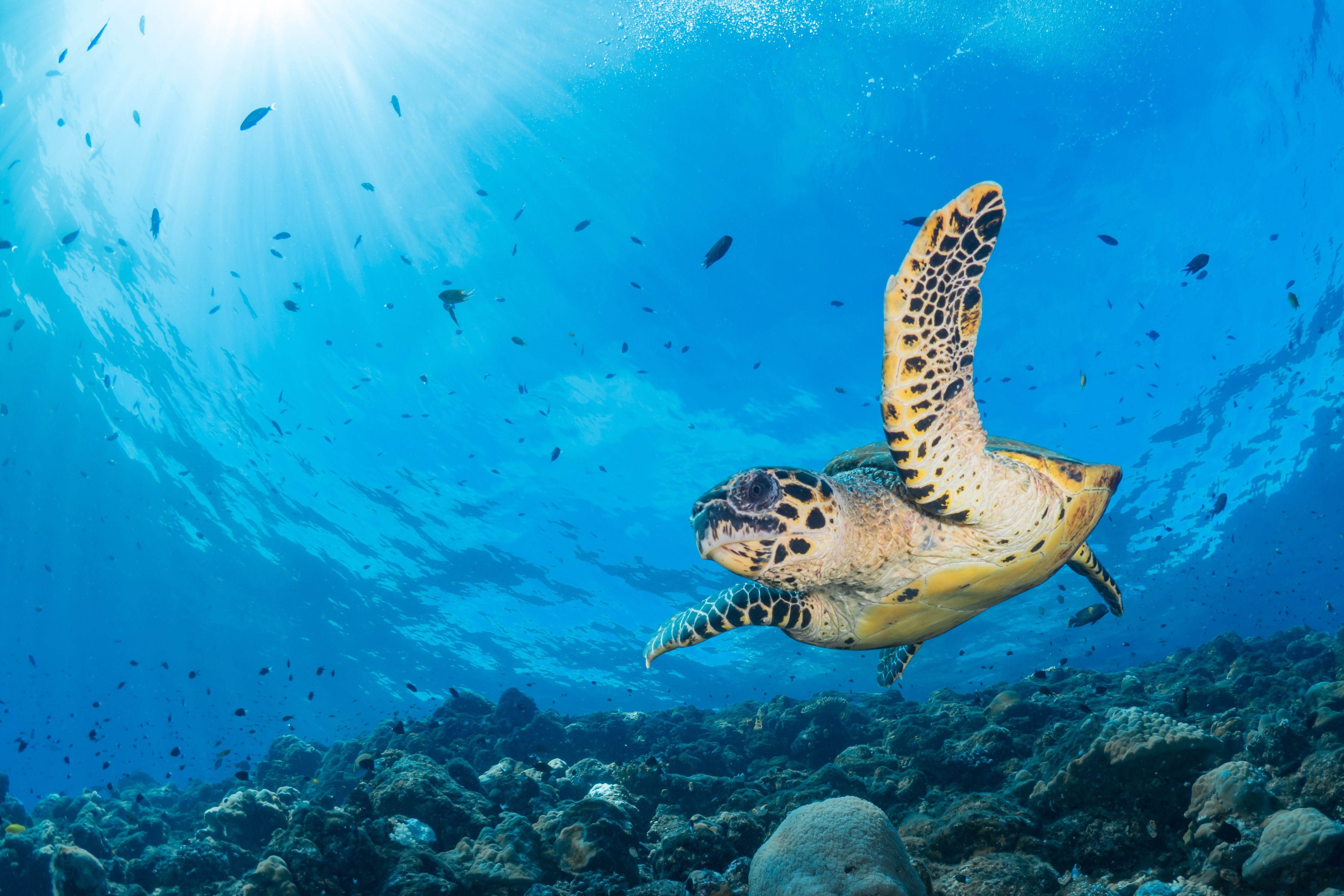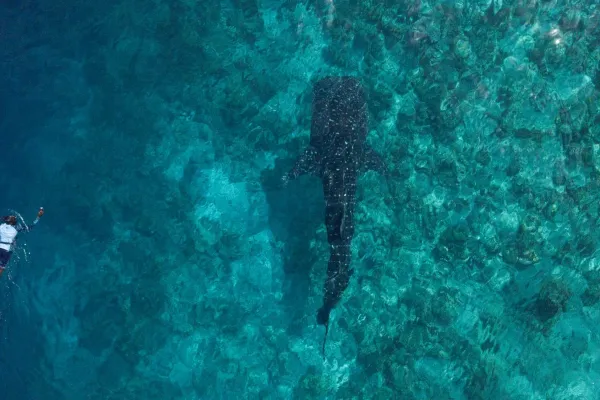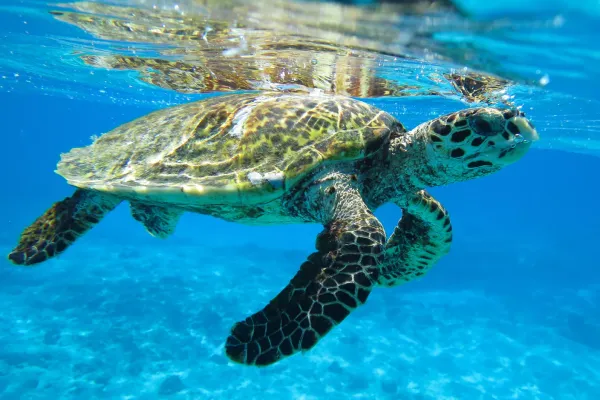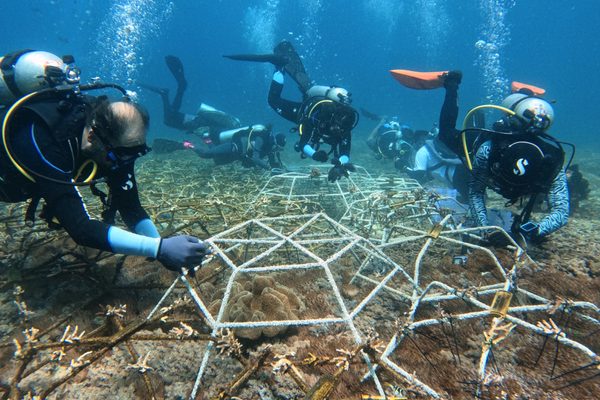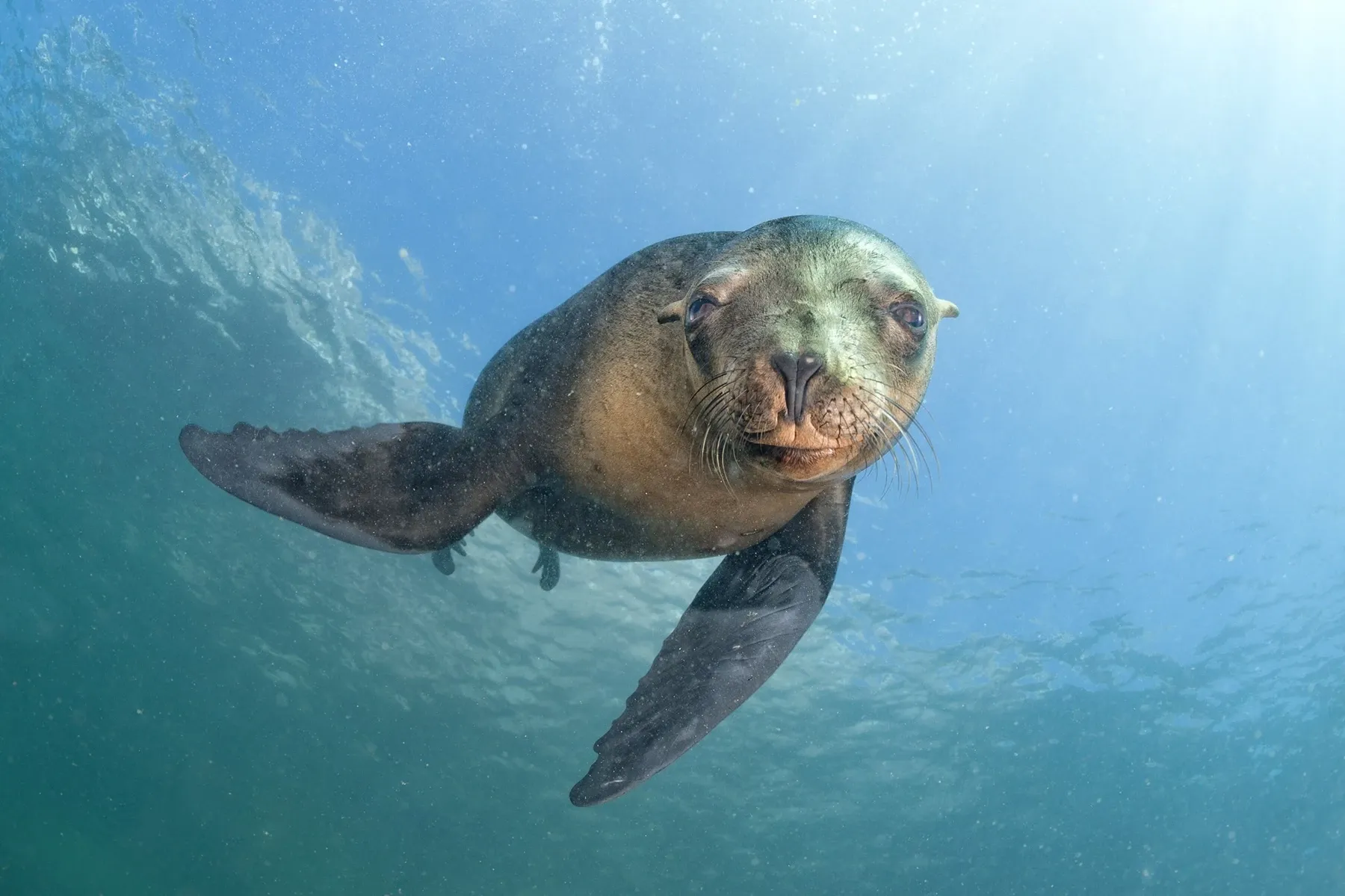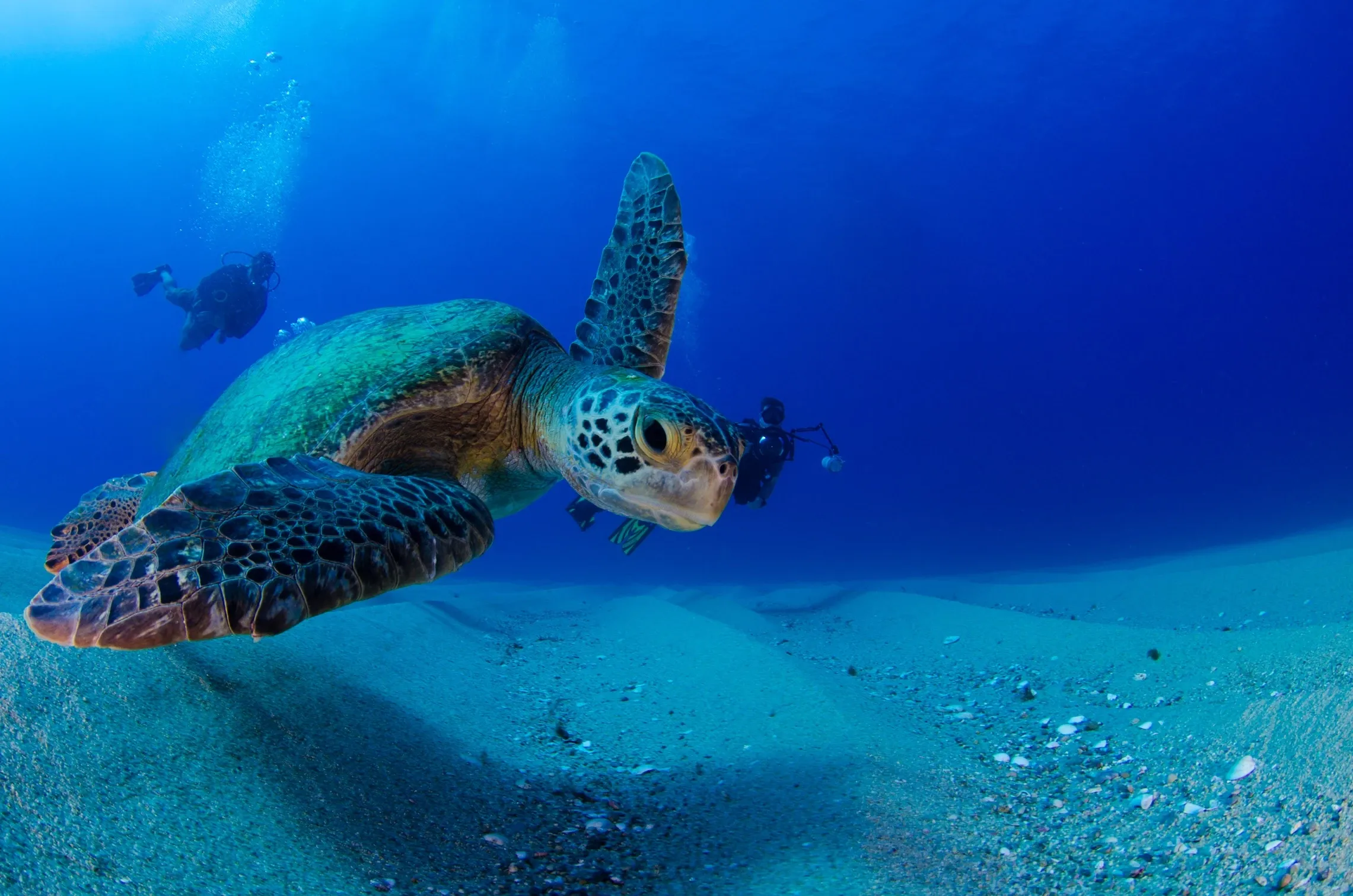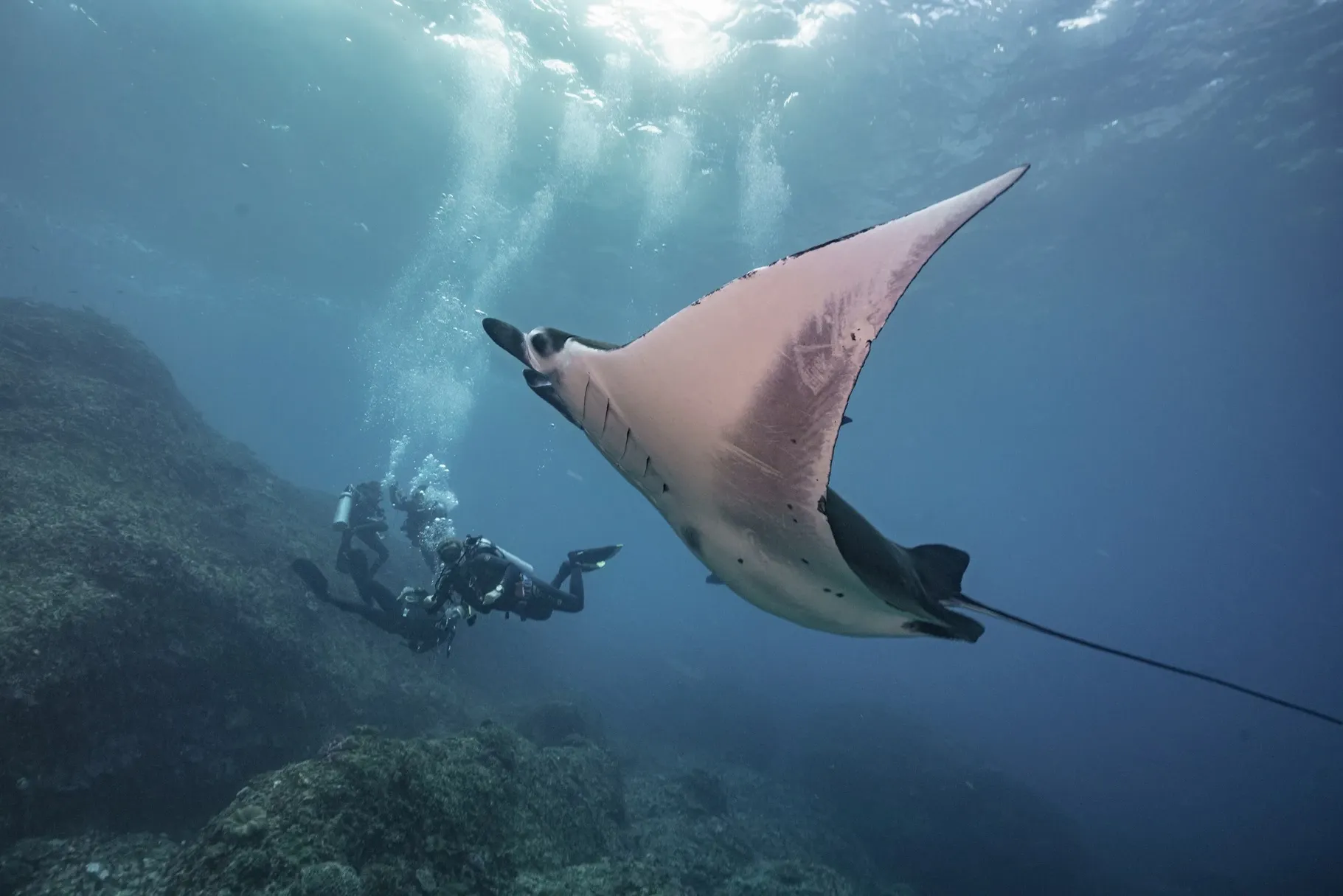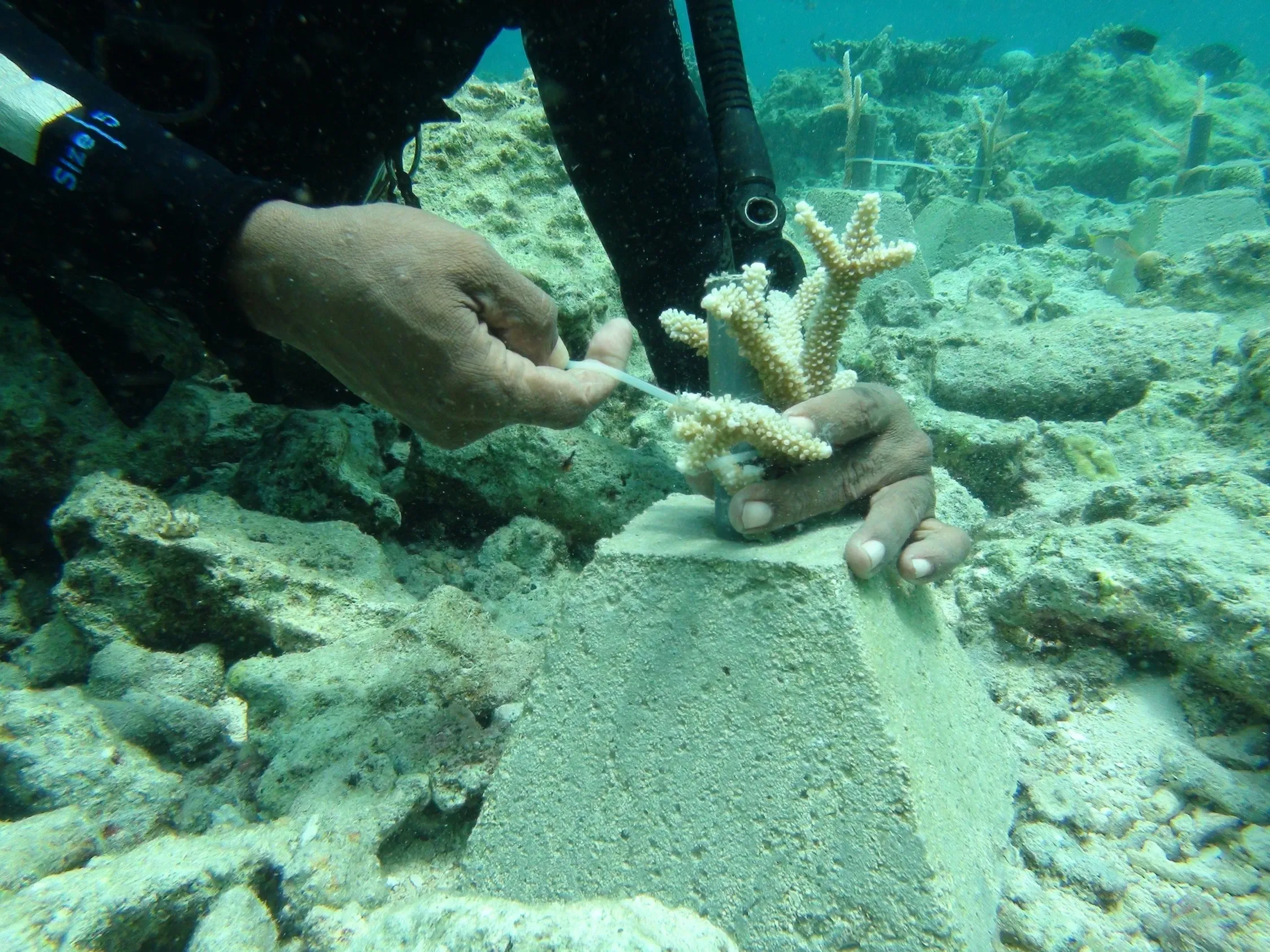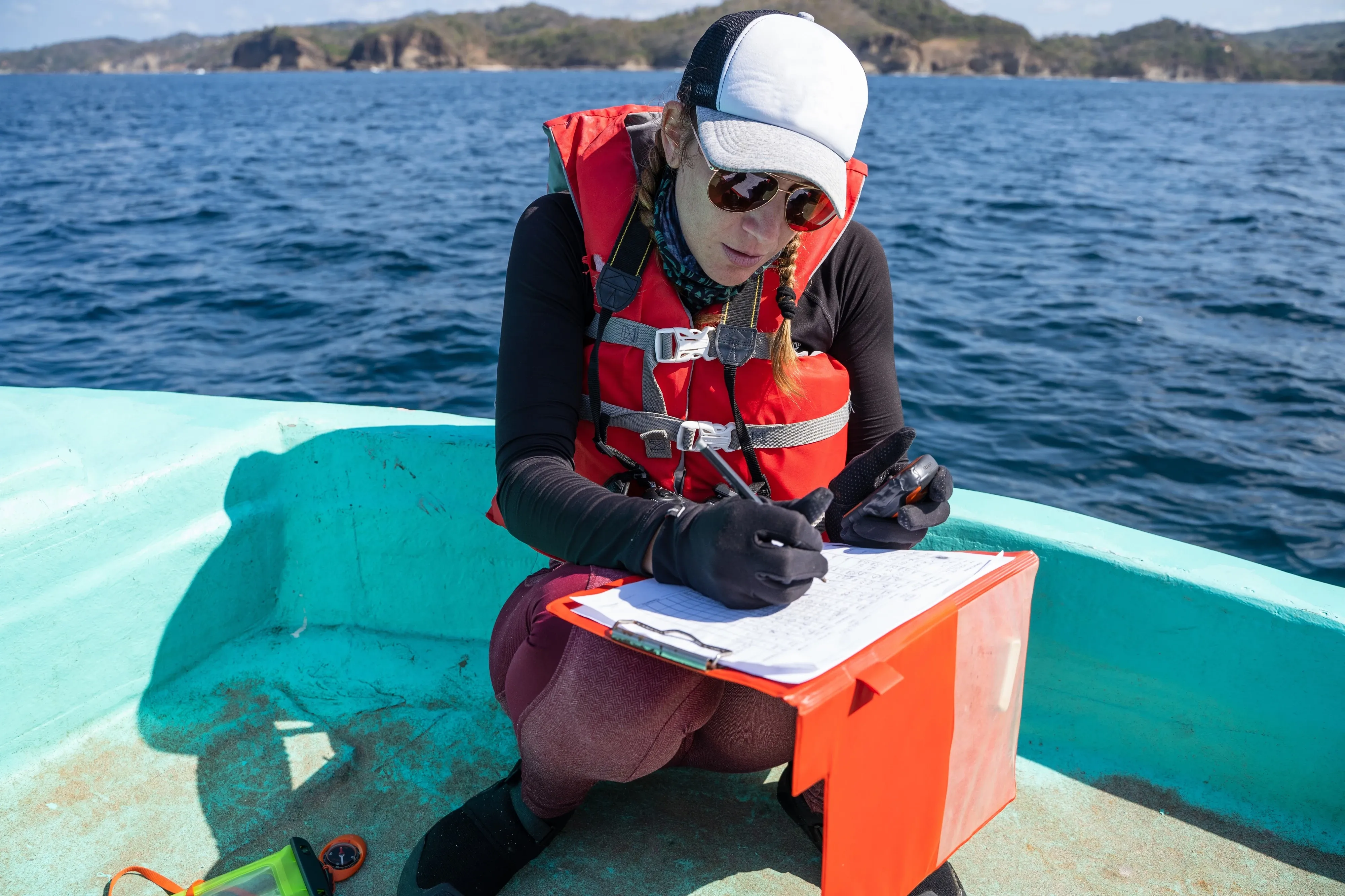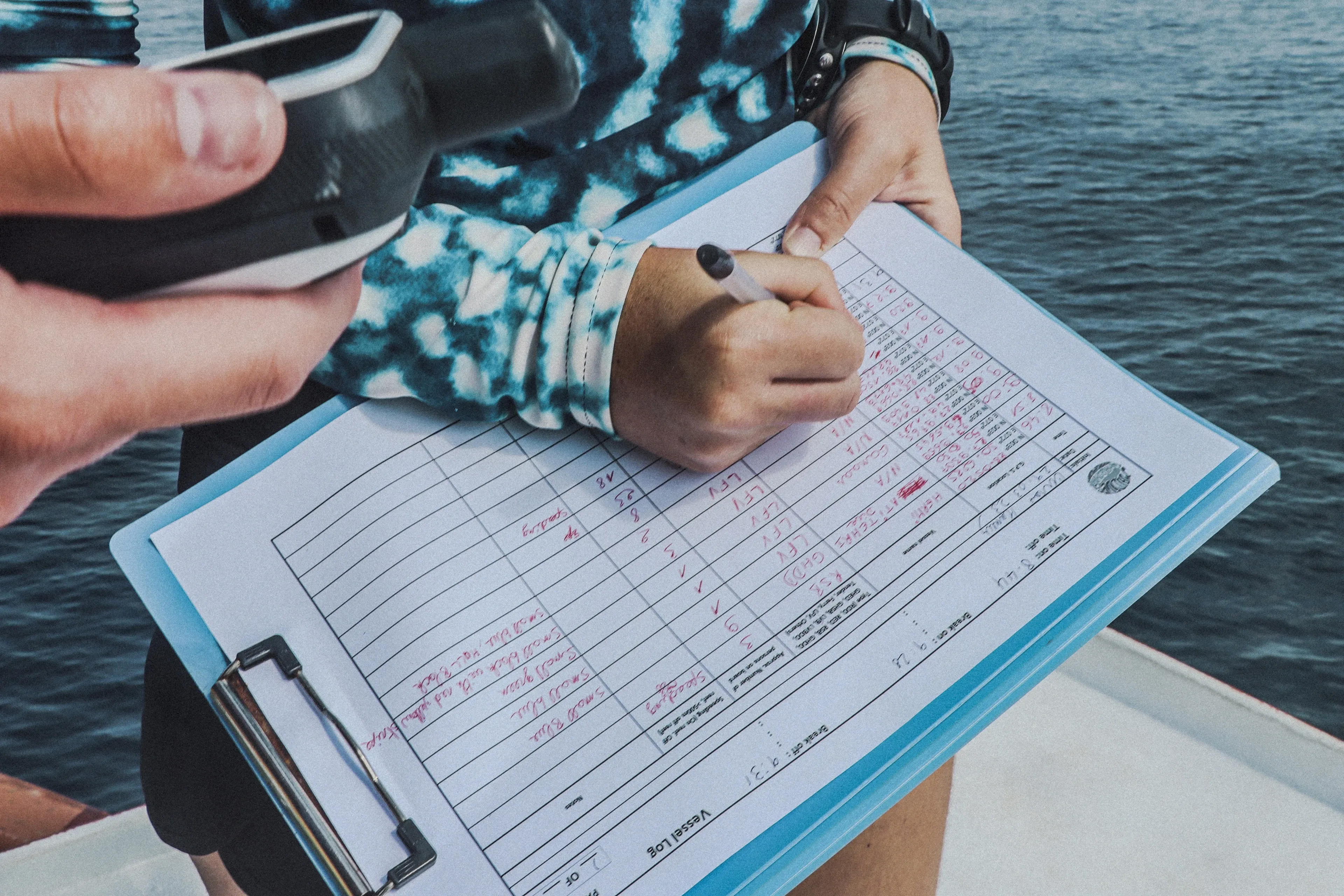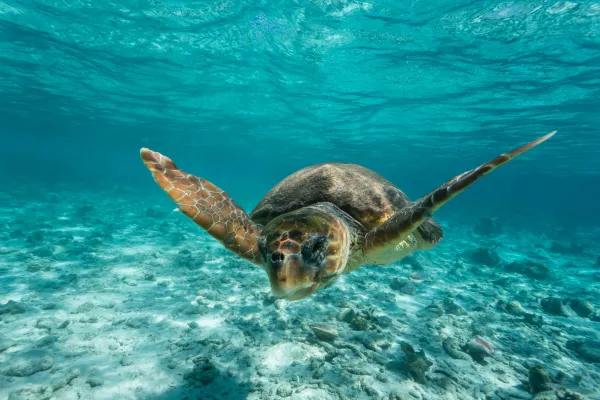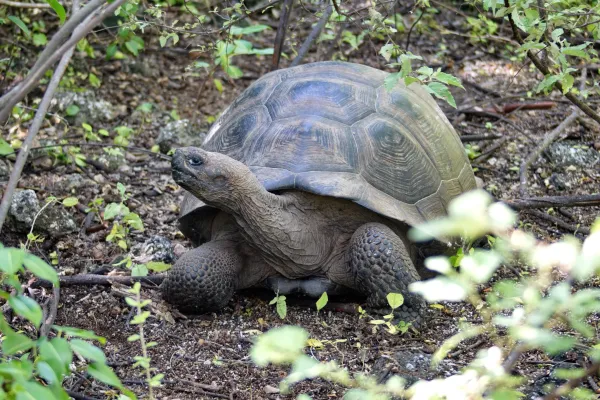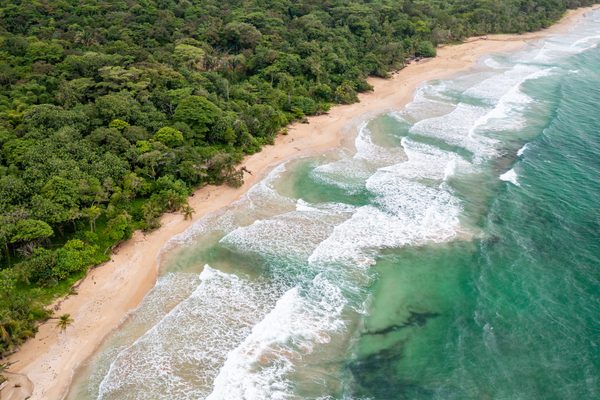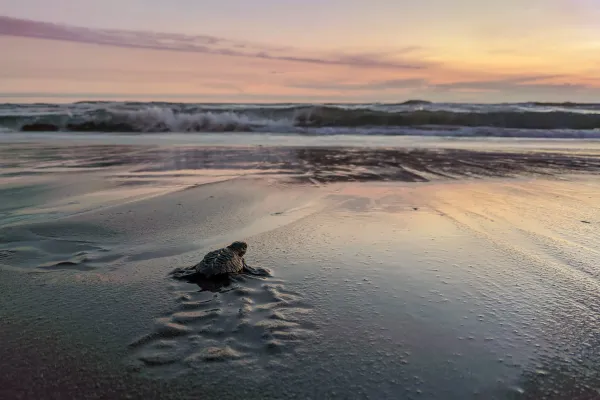Volunteering in marine conservation
Volunteering in marine life conservation provides invaluable hands-on experience in protecting our oceans' delicate ecosystems. As a volunteer, you'll have the chance to safeguard not only the underwater world but also the terrestrial environments and their inhabitants, which are intricately connected to the health of our oceans.
Covering over 70% of our planet, oceans are vital for the survival of all biotic and abiotic life forms. They provide habitats for an astonishing array of marine species, supply food and jobs for humans, and generate over half of the Earth's oxygen. Protecting our oceans is essential for maintaining the balance and well-being of our entire planet.
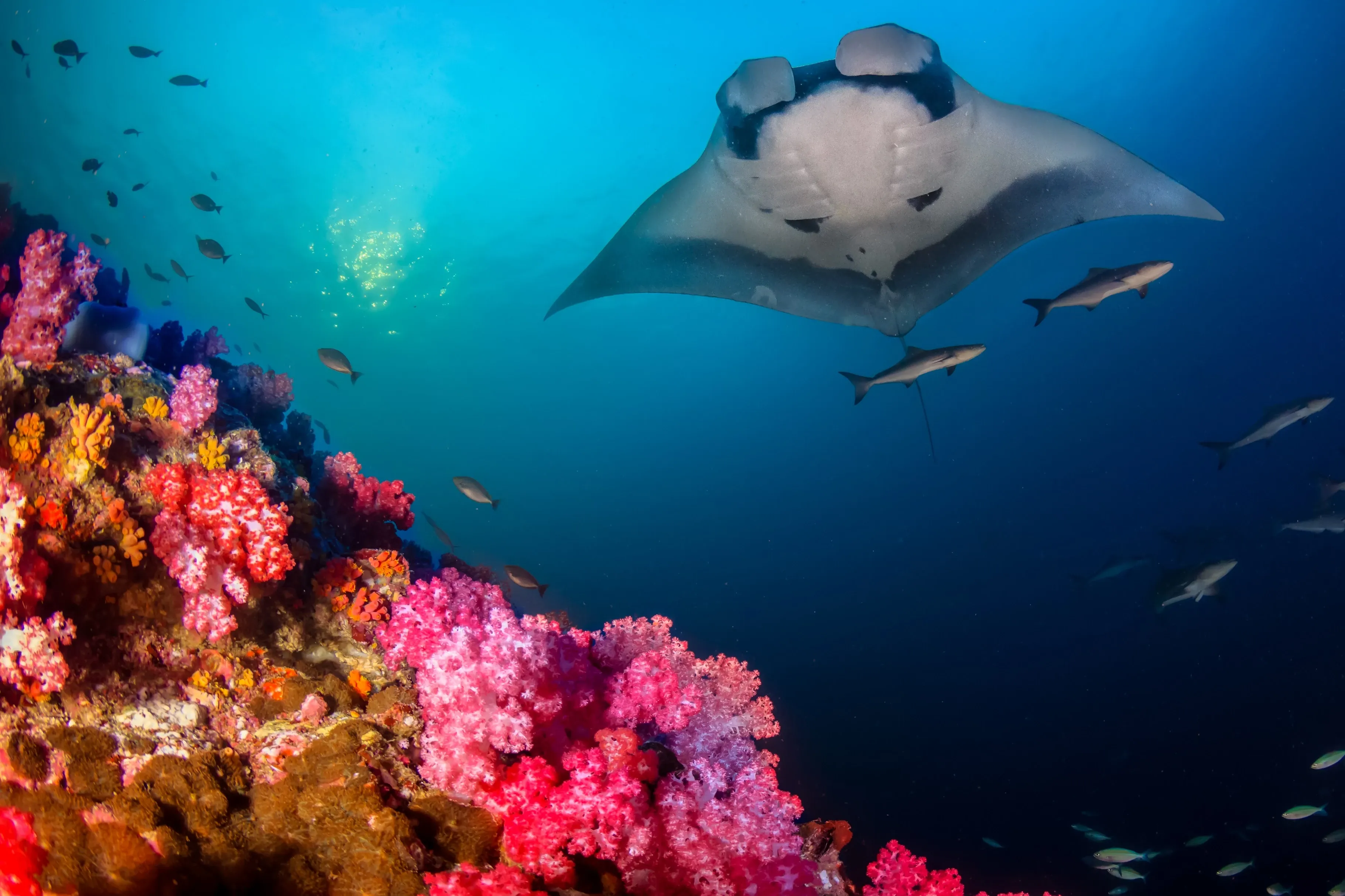
Volunteering in marine life conservation immerses one in the intertwined nets of the ocean, its inhabitants, its coexistence with the terrestrial counterparts, its mystery and threats. Besides its size and remarkable beauty our oceans are threatened heavily. They suffer from pollution, overfishing, climate change, industrialization, oil spills and species extinction.
Be part of the combat and learn from ocean conservationists, marine biologist, marine life naturalists and other sea experts how to fight to protect and safeguard our delicate and mysterious oceans, as well as the astonishing marine life. Deepen your knowledge about marine life biology and become part of a passionate international community that saves our ocean and marine environment for a better future - for yourself and others.
Highlights of volunteering with marine life:
- Gain a deeper understanding of the intertwined nets of our oceans, the marine life, and their terrestrial counterparts
- Experience the ocean intensively above and below water, while encountering an astonishing array of marine life
- Acquire conservation skills and protection technics from experienced marine biologists and ocean experts
- Learn how local communities, scientists, and international policies engage together to protect our marine life and oceans
What is unique about marine life?
Our oceans are biodiversity hotspots, home to a spectacular array of fauna and flora. From tiny bacteria and plankton to sea turtles, whale sharks, and the largest mammal on Earth—the blue whale—these waters teem with life. The ocean's environments range from rainbow-colored coral reefs and green seagrass meadows to shadowy kelp forests and ice-covered expanses. Underwater volcanoes, impressive rock formations, and unexplored depths add to the ocean's mystique.
The five world oceans—the Atlantic, Indian, Pacific, Arctic, and Southern—as well as other seas, brim with marine life. Scientists believe millions of species remain undiscovered. Oceans cover more than 70% of Earth's surface, creating a vast network that connects marine life across continents. Many species rely on these connections, migrating between environments and breeding and feeding grounds.
Marine life evolution began roughly 3-4 billion years ago, with species evolving differently than their terrestrial counterparts. Marine mammals have adapted to underwater living by reducing their heart rates and holding their breath for extended periods—elephant seals for up to two hours and sea turtles for up to seven hours during hibernation. Sharks and rays breathe underwater through gills, while some fish, like clownfish, can change sexes if necessary. Whales, seals, penguins, and certain reptiles possess a fat layer under their skin for energy storage, insulation, and buoyancy. Unique species like snailfish thrive at depths exceeding 8,200 meters.
The physical and chemical properties of seawater shape marine life's diversity and distribution, making the study and conservation of these ecosystems both fascinating and crucial. Protecting our oceans is essential for maintaining the planet's biodiversity and ensuring the health of all life forms that depend on them.
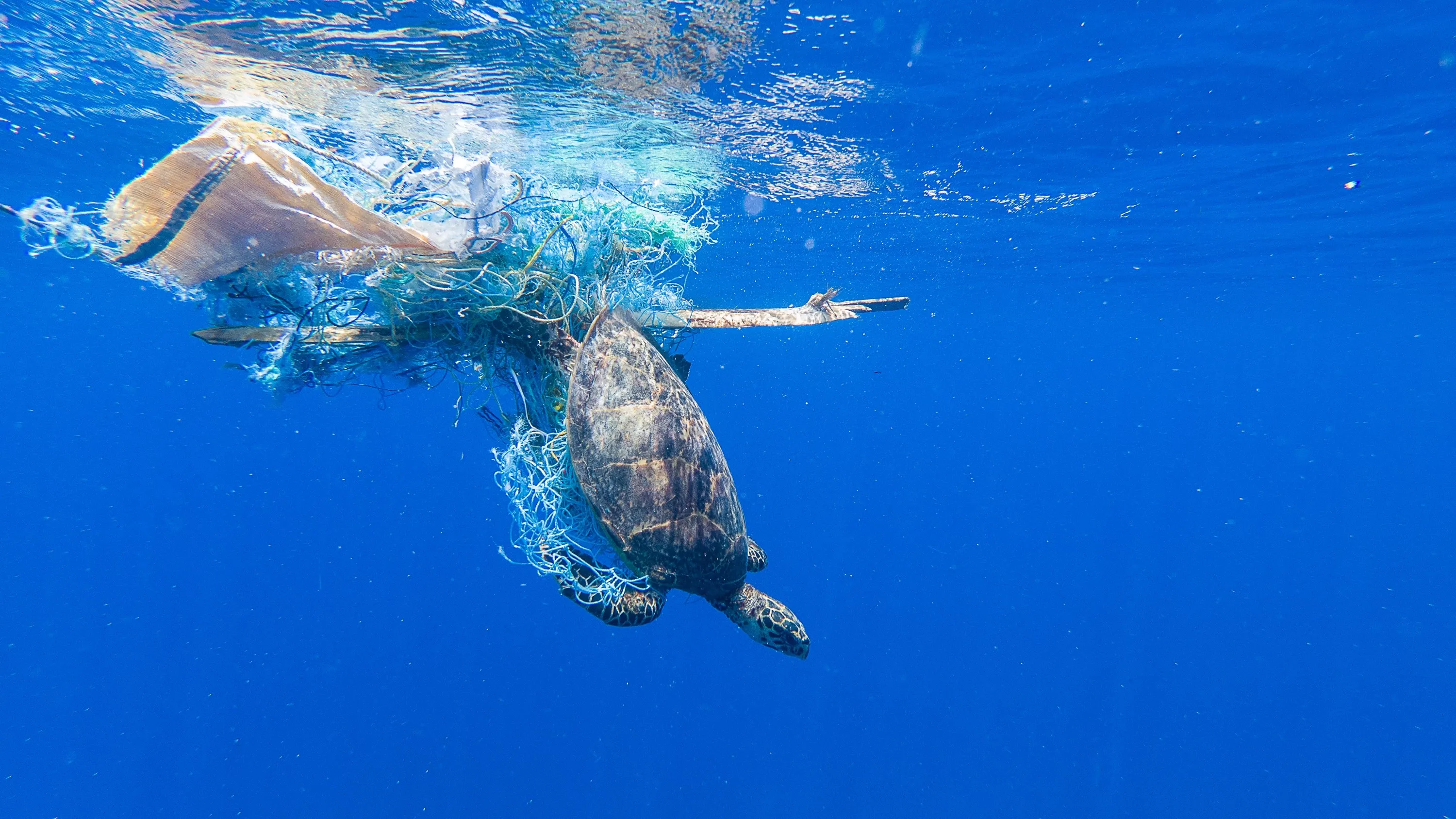
Why we need to protect marine life?
The oceans marine life is a delicate balance, which we have to protect at all costs. The Ocean not only provide us with the necessary oxygen, which we need to survive but also absorb more carbon dioxide than our trees on land. The interconnection of marine life species and their environment has to be conserved. Each species plays a crucial role in keeping the oceans and coastal ecosystem healthy. If one species or environment suffers or even goes extinct other species who were dependent on it, will soon follow. Therefore it is vital to monitor our marine life and their environments to find solutions and react rather sooner than later to protect those powerful balances.
The oceans and seas are suffering from huge threats such as pollution, overfishing, industrialization, oil spillings. marine life suffers from the same threats as well as cultural uses and habitat destruction. By conserving the ocean we not only safe the mind-blowing marine life biodiversity but also our underwater and terrestrial environments, as well as terrestrial Flora and Fauna, to which our species includes as well.
»We are all connected to the sea. We need to protect it and its inhabitants.«
How to save marine life?
Protecting and conserving marine life needs different kind of measures. By collecting data and doing research upon endangered or threatened marine life species such as whale sharks, belugas, sea turtles, rays and sharks, we can see how threatened the different marine life species are. Mapping the ocean environment such as sea grass meadows or coral reefs, as well as participating in beach-clean ups, helps us to determine the health of those delicate environments. Supporting local communities and NGO’s are other ways to save marine life and spread the importance of their protection.
What do I need to know about volunteering with marine life?
Before you start volunteering with marine life there are a few things to consider before you immerse yourself in this wonderful and life-changing experience. The most important consideration point is to research an organisation that shares your values. The next vital point you should research is the activities and understand the different tasks you will be involved. Remember that different countries and culture have different approaching methods and that they may differ from what you know. Most tasks that are involved in marine life volunteering are: beach patrols, beach clean-ups, snorkel surveys, scuba diving, marine life biology research, data collection and data entering, sea grass mapping, coral restoration, marine species census, sea bird nest control, sampling marine health research and community outreaches.
Once you found a project that shares your values, make yourself familiar with the environment and culture that you will be working in. As a marine life volunteer you will be working mostly outside in areas with temperature differences of either hot and humid or cold and windy. Make sure you commit yourself for the time you chosen, as most communities and NGO’s need all the hands they can get for the time you’ve applied. Find out if by volunteering at your chosen organisation includes accommodation, food and support or which costs may be on your expenses, while you’re there. If you prepare yourself with all the background information for your chosen destination and organisation your experience can be life-changing. Immerse yourself fully and learn from dedicated marine life experts, conservationists and naturalist all about marine life ecology and biology.
Once you returned from your marine life volunteering experience, you can consider how to be involved into conservation efforts beyond your stay abroad. By reflecting your insights and values gained throughout your experience and by sharing it with others through lancing initiatives’ or giving talks in your own community at home, you can spread the words and involve others into conserving the worlds marine life.

Where to volunteer with marine life?
Volunteering in marine life conservation can take place all around the world. There are multiple volunteer projects in Thailand, the Philippines, in Indonesia or Australia where volunteers assist in diving projects and collect data for species identification kits or surveys regarding the health status of coral reefs. Around the Maldives or Mexico volunteers get the chance to be part of dedicated research team and monitor Whale sharks, as there are still not enough studies and information about those unique marine life species.
Dolphin and whale research volunteers in Italy, France, Portugal, Spain or even England get opportunities to join nature-enthusiasts on sailing-boats or land in order to gain a deeper knowledge and understanding for those astonishing marine mammals. There are multiple marine life conservation effort for the protection of sea turtles in Greece, Costa Rica, Honduras, the Seychelles, Sri Lanka, and the remote Galapagos Islands, where volunteers protect the sea turtles nests and hatchlings, while doing some incredible outreach work to raise awareness for local communities.
As there are currently 98 shark species in Southern African waters, some marine life conservation volunteer projects in South Africa focus on researching those iconic marine life species including the great white shark. There are plenty of opportunities along the Atlantic and Pacific Ocean as well as on the Mediterranean and Caribbean coasts and offer marine life conservation volunteers a variety of projects and locations to choose from.
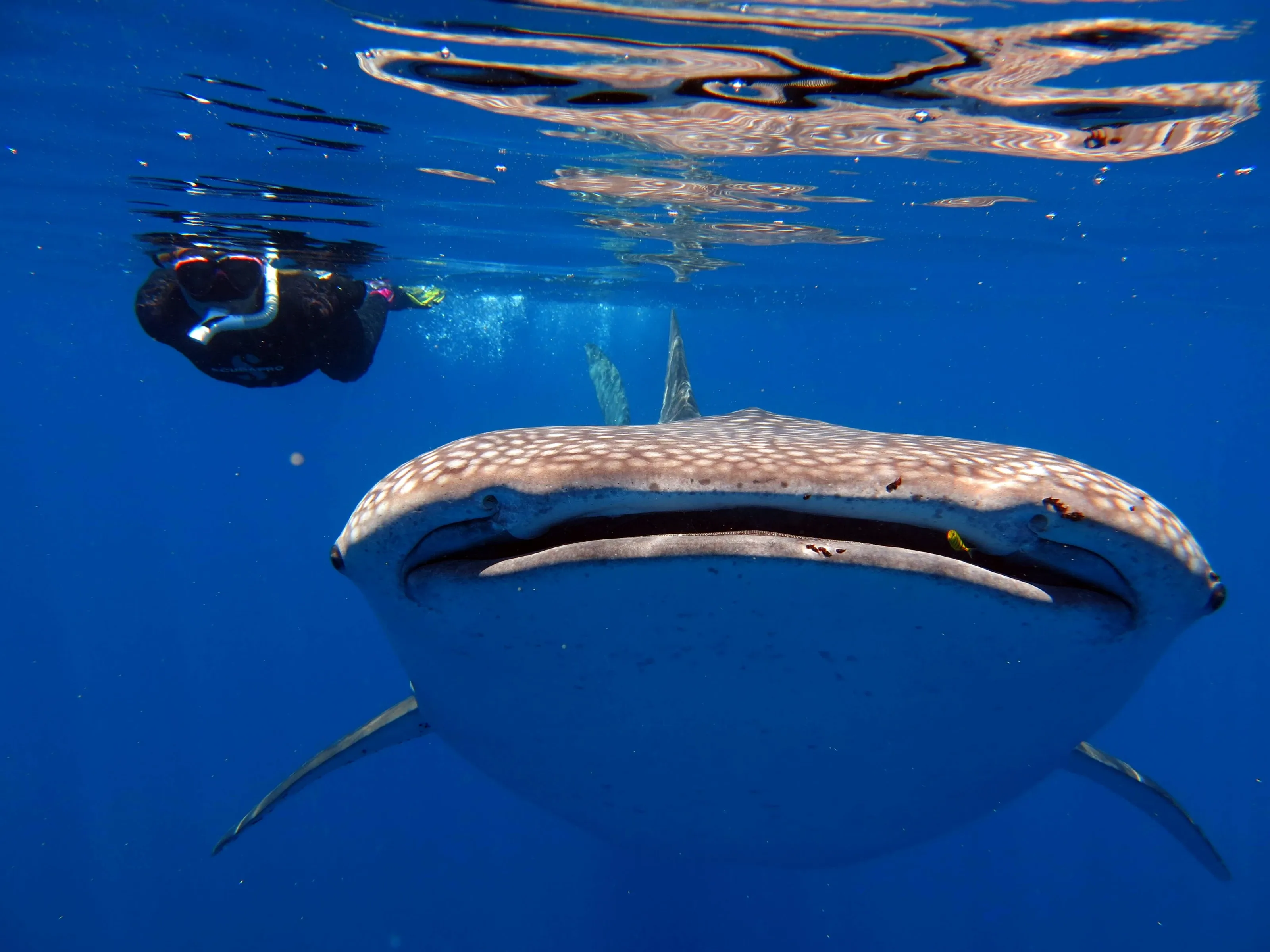
How I can learn more about marine life?
When you would like to volunteer in marine life conservation, it is great to prepare yourself before your adventure and learn about marine life biology, ecology and their environment to enrichen your experience. You can do this by reading books, scientific papers, watching documentaries or attending scientific talks in universities. By researching the internet you can scroll through scientific papers, blog articles, join marine life forums or interactive learning tools like iNaturalist and citizen science projects can also enhance your knowledge. Visiting marine life sanctuaries or aquariums and talk to marine life experts can also deepen your understanding for the marine life even more.
Four reasons to volunteer with marine life
- Conservation impact: Volunteering with marine life contribute to the conservation of endangered species, coral reefs, and other vital habitats. This direct involvement supports long-term sustainability and biodiversity.
- Educational experience: Volunteering offers hands-on learning opportunities that deepen your understanding of marine biology and ecology. You'll gain practical skills and knowledge that can't be acquired through textbooks alone, enhancing both personal growth and professional development.
- Connection with nature: Working closely with marine environments fosters a deep connection with nature. This experience can be profoundly fulfilling, offering a unique perspective on the importance of marine ecosystems and inspiring a lifelong commitment to environmental stewardship.
- Community and networking: Volunteering with marine life connects you with like-minded individuals who share a passion for marine conservation. You'll build valuable relationships and networks with professionals, researchers, and fellow volunteers, creating a supportive community dedicated to making a positive impact across all oceans.
Sign up for the newsletter
By clicking on “Subscribe now” I will subscribe to the Conscious Explorer newsletter with all the information about mindful travel. Information on the success measurement included in the consent, the use of the shipping service provider MailChimp, logging of the registration and your rights of revocation can be found in our privacy policy.
